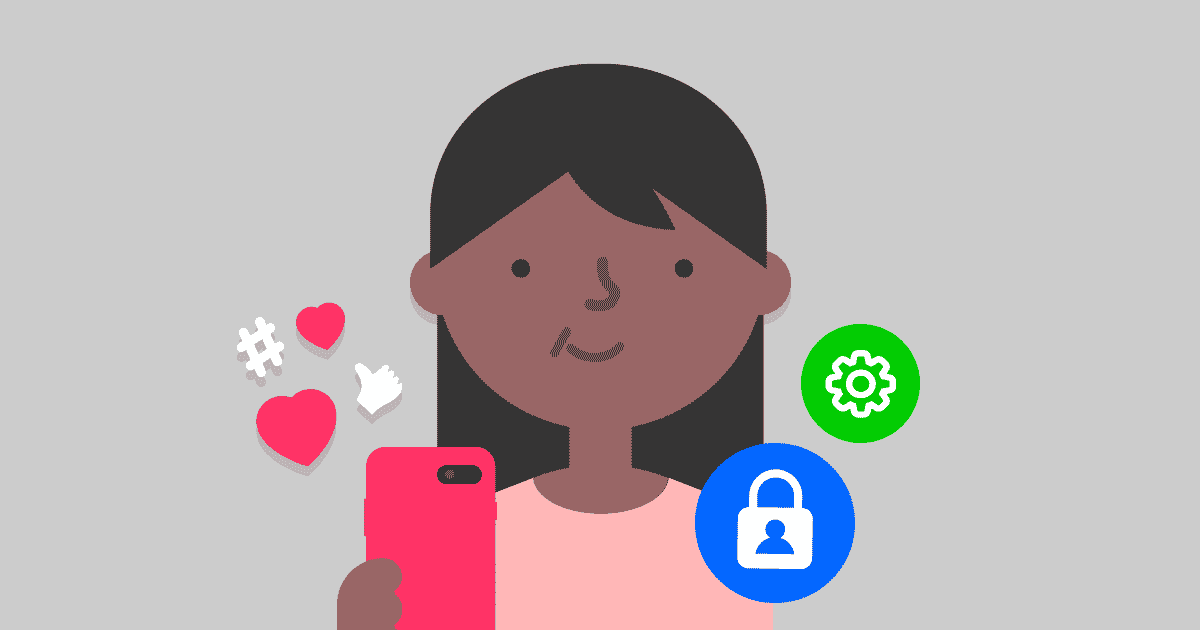Social media benefits
Social media has its risks, but it also opens up chances for children to build important media literacy skills and create a good digital footprint. See what other benefits it offers to help them get the best out it.
What’s on the page
How social media can support young people
Although social media can present some risks, when used mindfully, it can offer real positives for children’s growth and learning.
Below is a list of ways social media can be a source for good for children and young people.
Social media helps children get comfortable with the digital world early on—a skill they’ll need for nearly any career. When children learn to manage privacy settings, post responsibly, and understand online interactions, they’re building valuable, real-world digital literacy.
85% of parents agree digital skills are essential for their child’s future.
Top tip: Show your child how to use privacy tools, make mindful posts, and create a positive online presence.
For many young people, social media keeps them close to family and friends, especially those they may not see in person as much. This can help them feel more grounded, supported, and included.
70% of kids aged 9-16 say social media helps them stay connected to family and friends.
Top tip: Encourage your child to connect with family and friends on social media and balance it with quality offline time.
Social media offers endless communities where children can dive into their interests, from gaming and sports to art and science. This can spark their curiosity and fuel their passions.
Over half of young people say social media helps them learn more about their hobbies and interests.
Top tip: Help your child find age-appropriate groups or pages, and check in to see if they’re learning or feeling inspired.
Social media can be a great way for kids to showcase their achievements, creativity, and personal values. This helps them create a positive digital footprint early on, which could even benefit them when applying to schools or jobs later.
Top tip: Encourage your child to share content that reflects their interests and values, and remind them that respect and kindness go a long way online.
Through social media, kids can learn about people’s lives from all over the world, exposing them to new ideas and global issues. This can be a great way to build empathy and an awareness of the world beyond their own.
60% of kids say social media helps them learn about different cultures and people’s lives.
Tip: Talk with your child about what they see online, ask questions, and encourage them to follow positive role models.
What teens & parents say is good about social
Connection
Parents and young people see social media as a valuable way to form friendships and feel supported, especially for young people who may feel isolated.
Creativity
Many teens say social media is a place to express their creativity and showcase their talents.
Learning and activism
Teens use social media to explore causes they care about and start campaigns. Many parents see this as a great way for teens to develop social awareness and leadership
Future-ready skills
Social media boosts digital skills—from managing privacy settings to crafting messages—skills that parents believe are crucial for future careers
Support network
Two-thirds of teens feel they have a supportive community online, which can be especially helpful during tough times.
5 tips to help young people make the most of social media
Here are some ways that you can encourage young people to use social media so it has a positive impact on their wellbeing.
Role model the behaviour you’d like them to express on their social media. Children and young people tend to copy behaviours so it’s important to reflect the same values you’d like them to adopt.
Look for ways that they can do good by using their social media following, whether it’s promoting a cause that will benefit others or sharing something that will offer support and contribute positively to their digital footprint.
Actively look for moments to discuss what they post, who they share with and how what they see on their social feed impacts them to offer support at the right time.
Encourage young people to form strong in-real-life relationships outside social media to ensure they don’t rely on the approval and opinions of social media users, which are purely online and could negatively impact them.
Ensure teens know how to use social platforms’ privacy settings to stay in control of who they share with and when and what appears on their accounts from others.
More in the hub
Supporting resources
See the latest articles on social media online safety issues and find resources to support children and young people.
 Parent stories
Parent stories
Making friends and managing real friendships online – tips from a parent
Mum Eilidh shares safety tips that have helped her to support her children.
 Expert opinion
Expert opinion
Common online scams targeting teenagers
Explore common online scams with advice from finance expert Ademolawa Ibrahim Ajibade to help keep kids safe online.
 News & blogs
News & blogs
Cake Stories, #StoryTime and other misleading content
Cake stories or videos marked with #StoryTime often include inappropriate and misleading content hidden in their narration.

Social media checklist for parents
Download and print the checklist to help children be social media-ready.

Setting up a teens' first social account
Advice for parents on conversations to have before children get social media.

Using social media privacy tools
Get tips on how to use safety features and privacy settings on the most social media apps that young people use to keep them safe.

UKCISS social media advice
Developed by a range of organisation to support parents managing children’s social media accounts.
 Close video
Close video
 Close video
Close video
 Close video
Close video
 Close video
Close video

